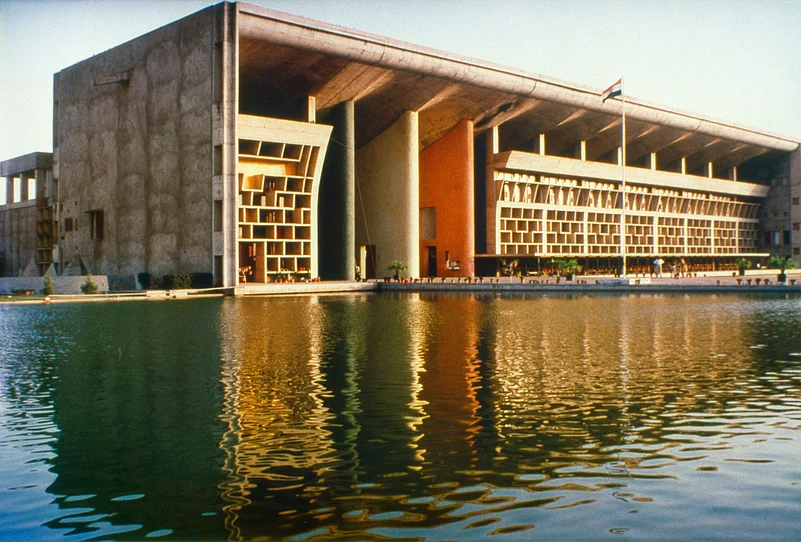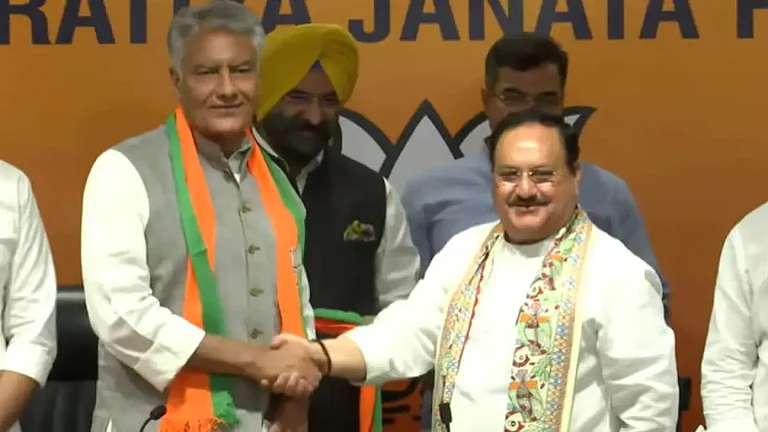
The proposed amendment sought to bring Chandigarh under Article 240, giving the President the power to issue regulations and potentially appoint a Lieutenant Governor.
This was perceived by Punjabi political parties as a threat to Punjab’s claim over the city, prompting strong opposition from AAP, Congress, SAD, and parts of the state BJP.
Chandigarh was created as Punjab’s post-Partition capital and became a Union Territory in 1966 following Haryana’s creation. Despite temporary arrangements for Haryana, it has no separate capital after more than 55 years.
The Union Government has backed away from its plans to table the contentious Constitution (131st Amendment) Bill, 2025, a proposal that had stirred anxiety among Punjab’s political leadership over the future of Chandigarh.
Officials have now stressed that they have “no intention” of altering the city’s administrative structure. Chandigarh functions as a Union Territory and as the shared capital of Punjab and Haryana. The Governor of Punjab currently serves as the Administrator of Chandigarh.
The amendment would have moved Chandigarh under Article 240, empowering the President to frame laws and allowing for an independent Administrator or Lieutenant Governor. Punjabi parties saw this as a direct threat to Punjab’s claim over Chandigarh as its capital.
On Sunday, the Centre clarified that while the idea of including Chandigarh under Article 240 remains “under consideration”, it will not introduce any such legislation in the forthcoming Winter Session of Parliament.
The reassurance followed a political storm in Punjab, triggered by parliamentary bulletins from both the Rajya Sabha and the Lok Sabha indicating that the government was preparing to introduce the Constitution (131st Amendment) Bill when the session opened on December 1.
The Home Ministry has clarified that it will not introduce the Constitution (131st Amendment) Bill, 2025, in the Winter Session, following strong political opposition in Punjab. The bill’s introduction has been halted for the current session in response to resistance from the ruling Aam Aadmi Party in Punjab, Punjab Congress president Amarinder Singh Raja Warring, and SAD president Sukhbir Singh Badal.
Backlash in Punjab—including AAP, Congress, SAD, and even parts of the state BJP—forced a rethink. Reportedly, Punjab BJP leaders raised concerns with Union Home Minister Amit Shah, prompting the ministry to issue a swift clarification that no changes to Chandigarh's governance were planned.
What the Constitution (131st Amendment) Bill proposed
The Bill aimed to bring Chandigarh under Article 240, grouping it with Union Territories without legislatures. This would let the President issue city regulations and likely appoint a Lieutenant Governor to replace the Punjab Governor in administration.
Article 240 allows the President to issue regulations for Union Territories such as the Andaman and Nicobar Islands, Lakshadweep, Dadra and Nagar Haveli, Daman and Diu, and Puducherry (when its Assembly is suspended). These regulations have the force of law.
Chandigarh was conceived as Punjab’s modern post-Partition capital, replacing Lahore, which became part of Pakistan in 1947. Following the Partition, Shimla in Himachal Pradesh served as a temporary capital. In 1948, the Central Government and the Punjab administration selected a site at the foothills of the Himalayas and acquired 22 villages in Kharar to construct a planned city.
Designed by Le Corbusier, Chandigarh was inaugurated as the capital of Punjab in 1953 by President Rajendra Prasad.
Punjab underwent another division when the Hindi-speaking, Hindu-majority state of Haryana was carved out under the Punjab Reorganisation Act of 1966. As a result of the Act, Chandigarh, situated on the border, was designated a Union Territory under the direct control of the Central Government and made the shared capital of both Punjab and Haryana. Assets in the city were allocated on a 60:40 basis between Punjab and Haryana.
At the time, then Prime Minister Indira Gandhi had announced that Haryana would be provided with its own capital. There was even a brief proposal to divide Chandigarh into two, but this was ultimately rejected.
On 29 January 1970, the Centre declared that “the capital project area of Chandigarh should, as a whole, go to Punjab.” The government was compelled to make this announcement when Fateh Singh, leader of the Punjabi Suba movement, threatened self-immolation if Chandigarh was not transferred to Punjab.
However, Haryana was granted temporary arrangements to operate offices in Punjab’s civil secretariat, as well as space in Punjab’s Vidhan Sabha. The state was permitted to use the office and residential facilities in Chandigarh for five years, until it could establish its own capital. The Centre also offered Haryana a grant of Rs 10 crore and a loan of an equivalent amount to support the construction of the new capital.
More than 55 years later, Haryana still has no separate capital, and Chandigarh continues as the joint capital, reinforcing Punjab’s longstanding assertion that the city rightfully belongs to it in full.
Political response in Punjab
Punjab Chief Minister Bhagwant Mann, Congress leader Amarinder Singh Raja Warring, and SAD president Sukhbir Singh Badal each strongly condemned the proposal, viewing it as a threat to Punjab’s claim on Chandigarh and warning of serious consequences.
Congress leader Amarinder Singh Raja Warring said the move was uncalled for and warned of serious consequences.
SAD president Sukhbir Singh Badal said the bill breaks promises to Punjab and would permanently end the state’s claim to Chandigarh.




























